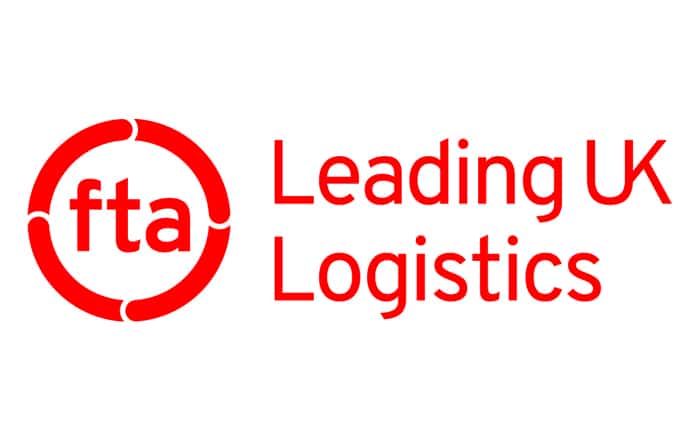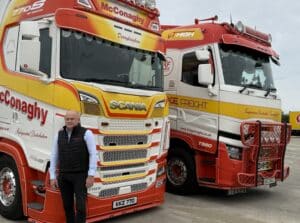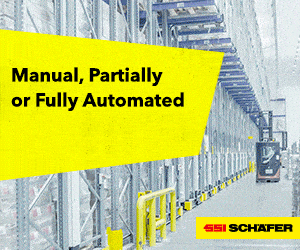The majority (71.4 per cent) of van operators intend to use electric vehicles in their fleets this year, according to FTA’s 2019 Logistics Report, launched in association with Santander Corporate and Commercial Banking. FTA, the organisation representing the logistics industry, is calling on government to recognise this shift in intention and increase its investment into electric vehicle affordability, to ensure that the changes can happen quickly and efficiently.
Denise Beedell, Policy Manager for Vans and Urban at FTA, commented: “FTA and its members are fully committed to reducing their carbon emissions wherever possible; we are not surprised, therefore, that so many intend to use electric vehicles in their van fleets but they will need assistance from government to be able to do so. By providing clear guidance on how it plans to upgrade the grid infrastructure – without all the costs falling on individual businesses – legislators would make the shift to electric an attractive option for companies of all sizes and shapes. But more must be done to ensure it is a fully viable low-emission solution. For example, electric vans are still significantly more expensive to purchase than their standard fuel-based counterparts; public charging points must be available for use by businesses as well as residents. FTA is calling on government to review its approach to the grid infrastructure upgrade – a costly project which should not be left to individual commercial operators to fund.”
For the exclusive report, FTA polled the opinions of more than 500 freight and logistics businesses operating in the UK and internationally to provide industry insight into the latest political and economic developments.
The survey found a further 24 per cent of van operators plan to use range-extended vehicles in their fleet, 41 per cent plug-in hybrid electric vehicles, and seven per cent vehicles fuelled by hydrogen (for use by Fuel Cell Electric Vehicles).
Mrs Beedell continued: “As testament to the value it provides to the UK economy, the vans market continues to grow consistently, with 13 per cent of survey respondents planning to increase their van fleet over the next 12 months. But the UK is facing a serious van driver shortage; these fears are exacerbated by the large proportion of EU nationals currently working across the vans market in the UK. The survey found that 20 per cent of all professional van drivers are EU nationals, but as this does not include people for whom van driving not their primary role – plumbers and florists, for example – the figure is likely to be much higher. FTA is calling for government support to ensure non-UK logistics workers are welcomed in the UK, both before and after Brexit, to prevent the shortage reaching catastrophic levels.”
John Simkins, Head of Transport and Logistics, Santander Corporate & Commercial, commented: “Uncertainty has been the inevitable reality for UK businesses over the last year, and vans businesses are no exception. In order that these UK businesses can continue their operations with as little disruption as possible, it is vital that we work closely with the transport & logistics industry. The importance of the sector and their drivers must not be undervalued, which is why we remain committed to continuing our work with the FTA and businesses in the sector in 2019 and beyond.”
Efficient logistics is vital to keep Britain trading, directly having an impact on more than seven million people employed in the making, selling and moving of goods. With Brexit, new technology and other disruptive forces driving change in the way goods move across borders and through the supply chain, logistics has never been more important to UK plc. A champion and challenger, FTA speaks to Government with one voice on behalf of the whole sector, with members from the road, rail, sea and air industries, as well as the buyers of freight services such as retailers and manufacturers.
For more information please visit Click Here
This content brought to you by
About Logistics UK
Who we are?
FTA are one of the biggest business groups in the UK, supporting, shaping and standing up for efficient logistics. We are the only organisation in the UK that represents all of logistics, with members from the road, rail, sea and air industries, as well as the buyers of freight services such as retailers and manufacturers whose businesses depend on the efficient movement of goods.
Why do we exist?
An effective supply chain is vital to Keep Britain Trading, directly impacting over 7 million people employed in making, selling and moving the goods that affect everyone everywhere. With Brexit, technology and other disruptive forces driving changes in the way goods move across borders and through the supply chain, logistics has never been more important to UK PLC.
What do we do?
As champions and challengers, FTA speaks to Government with one voice on behalf of the whole sector, greatly increasing the impact of our messages and achieving amazing results for Members.
Media Contact:
Rona Hunnisett Link
Featured Media
Future Logistics Conference in 6 minutes! Link














